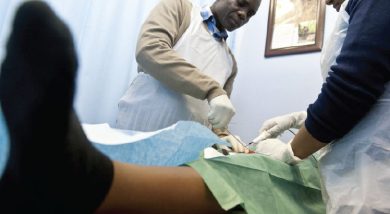Sad tales of boat rides
At 39, Andrew Chimwayo is widowed after losing his wife and three children in a boat accident in July.
For the Mozambican fisher plying his trade in Nkhata Bay, it all began with a thought to reunite with the deceased who had spent over a year in Mozambique.
The man wanted his family to relocate and start living with him in the northern shoreline district. But as fate would have it, the boat ride across Lake Malawi via Likoma Island ended in tragedy.
“I lost the whole family except one child,” he says.
The boat carrying 11 passengers capsized at Chigona between the island and the neighbouring country. Police reports indicate that six passengers drowned. Five of the dead were Malawians, four from Chimwayo’s family.

“It’s two months now, but I’m still in shock. I can’t come to terms with the reality that almost my whole family is dead,” he laments.
This is just one of the boat accidents that occurred on Lake Malawi in the past two months.
In August, another accident involving a boat carrying 30 people claimed two lives in Nkhotakota. The passengers were on their way to catch the MV Ilala, which had docked 500 metres from the shore in the absence of a functional jetty. However, the overloaded, leaky boat capsized midway.
Less than two weeks later, other boat accidents were recorded again in Likoma and Nsanje on the Shire River.
Captain John Mhango, the director of marine services in the Ministry of Transport and Public Works, says most boats sailing on Lake Malawi and other water bodies are unseaworthy.
He explains: “It’s only Lamani boat that is licensed to carry passengers and a speedboat at St Peter’s Hospital in Likoma is licensed to carry patients.
“So, all those other boats are not licensed to carry passengers. Some of them are licensed for fishing, but they transport people.”
The Inland Waters Shipping Act of 1995 requires each water vessel to be registered and licensed by the Marine Department.
Although the law obliges the department and marine police to strictly enforce its regulations, our findings show that the lakeshore districts of Karonga and Nkhotakota do not have the marine police to make the law work.
Nkhotakota assistant surveyor of vessels Chikumbutso Ziyaya says the district has “a lot of unlicensed boats” on Lake Malawi due to a lack of marine police to enforce the law.
“Out of all the district marine zones in the country, only Nkhotakota and Karonga don’t have mmarine police to assist in enforcing the Inland Waters Shipping Act,” he says.
Ziyaya says if the districts had marine police, boat licensing and awareness on the safety of life at sea could easily be addressed.
“People here neglect the procedure to register their boats and get licenses. This is unlike in other districts with marine police. They arrest any offender; hence, the adherence to the Act is somehow good,” he explains.
Ziyaya adds that each marine zone needs to have a patrol boat and manpower for regular inspections.
He explains: “At the moment, shortage of manpower is another huge challenge. I am the only one here and how do I cover the whole district amid lack of resources such as fuel?
“We need a decentralised marine system because we currently don’t have a budget for that in the councils,” he observes.
Lack of basic structures such as jetties and landing bays is another major cause of these accidents.
The have-nots include Nkhotakota, Makanjira in Mangochi, Senga Bay in Salima, Likoma, Chizimulu and Usisya in Nkhata Bay where the Ilala docks at a distance.
In these destinations, passengers perilously take overloaded boats from the shores to board the ship.
Mhango, however, says government plans to construct landing bays and jetties in all lakeshore districts.
Presently, government has approved K10 billion for the construction of Likoma Jetty.
National police spokesperson Peter Kalaya says marine police conducts periodic patrols to ensure that boats on the waters of Malawi meet the conditions of their licenses.
The marine police section is headquartered at Monkey Bay, Mangochi, but has strategic stations and units across the lakeshore areas.
“We are doing all we can to make sure that boat operators abide by the law and that those who break it face prosecution,” says Kalaya.
He singled out a case in Nkhotakota where the Nkhunga First Grade Magistrate’s Court jailed three people for four years for using unseaworthy boats that capsized and killed two people on Lake Malawi.
The court convicted the three because they “did not consider the safety of passengers despite knowing that they were not equipped with any safety gear”.
Taking culprits to book is commendable, but prosecution alone is not enough to reduce the carnage on the waters of Malawi. More needs to be done to prevent the accidents from occurring, and it requires manpower and resources to stop unseaworthy vessels from doing business dangerously.






One Comment